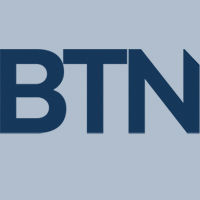Less than a week after JetBlue successfully secured a $3.8 billion takeover agreement for Spirit Airways, the company reported its best second-quarter revenue in its history and is “on pace to top it again here in the third quarter,” JetBlue CEO Robin Hayes said during a Tuesday earnings call.
Second-quarter capacity increased 2.3 percent over 2019, though the company reduced full-year capacity by 10 points to “build greater resiliency into the operations,” JetBlue president and COO Joanna Geraghty said. The company is seeing “good returns” on that decision, she said, noting the completion-factor challenges JetBlue had at the beginning of the quarter.
“We closed May and June with a completion factor above 98 percent, compared to approximately 90 percent during the first three weeks of April,” she said.
Third-quarter capacity guidance is a range of down 3 percent to flat versus 2019, while full-year capacity guidance is a range of flat to up 3 percent.
The carrier had total operating revenue of $2.45 billion, up 63.1 percent year over year, and up 16.1 percent over 2019. Passenger revenue was $2.3 billion, a 65.8 percent increase. The company, however, also posted a $188 million net loss, but was profitable in June and expects to return to profitability in the second half of 2022.
The average fuel price was $4.24 per gallon during the second quarter, a 97 percent increase from Q2 2019 of $2.16. The company expects an average price of $3.68 per gallon in the third quarter.
Business Travel and the Northeast Alliance
Business travel recovery continues, and JetBlue expects to see “another step up in the fall driven by continued return to work after Labor Day,” JetBlue head of revenue and planning Dave Clark said, “and there is certainly high traveler willingness to be on the road. We see that in the surveys and with all of our discussions with corporate customers. So we think the recovery will continue as we head through the fall.”
Geraghty credited JetBlue’s Northeast Alliance with American Airlines for the carrier’s ability to “serve a broader set of customers, including business travelers.”
“Business travel also continues to recover nicely, with Q2 contracted corporate bookings improving 10 points sequentially as we move closer to pre-pandemic levels,” Geraghty said. “The Northeast Alliance positions us well to capitalize on the continued business travel recovery as we expand our share of the corporate travel wallet in the region with a compelling network, schedule and service offering as well as reciprocity across our loyalty programs.”
Clark added that “about two-thirds of [corporate customers] now have the NEA codeshare benefits in their corporate contracts.
The Northeast Alliance was a sticking point in Spirit’s initial rejections of JetBlue’s offers, with the ultra-low-cost carrier concerned a deal might not meet regulatory approval given the U.S. Justice Department’s pending antitrust suit against JetBlue and American. But JetBlue has no intention of scaling back the alliance.
“While the industry has yet to return capacity to 2019 levels, the NEA is growing well in excess of the U.S. market,” Geraghty said. “We have added over 50 new routes not previously served by either carrier and increased frequencies on another 130. Collectively, with American Airlines, we are now offering more departures out of New York than Delta and United.”
Still, the company is “going to follow our legal advice and make sure that we are doing nothing to jeopardize [the] close [of] the transaction or to give concern to our regulators who are reviewing it,” Hayes said.
The company estimates that it could take between 60 to 90 days to secure Spirit shareholder approval, and then the deal, if approved, is expected to close no later than the first half of 2024, Hayes said.
Image and article originally from www.businesstravelnews.com. Read the original article here.

